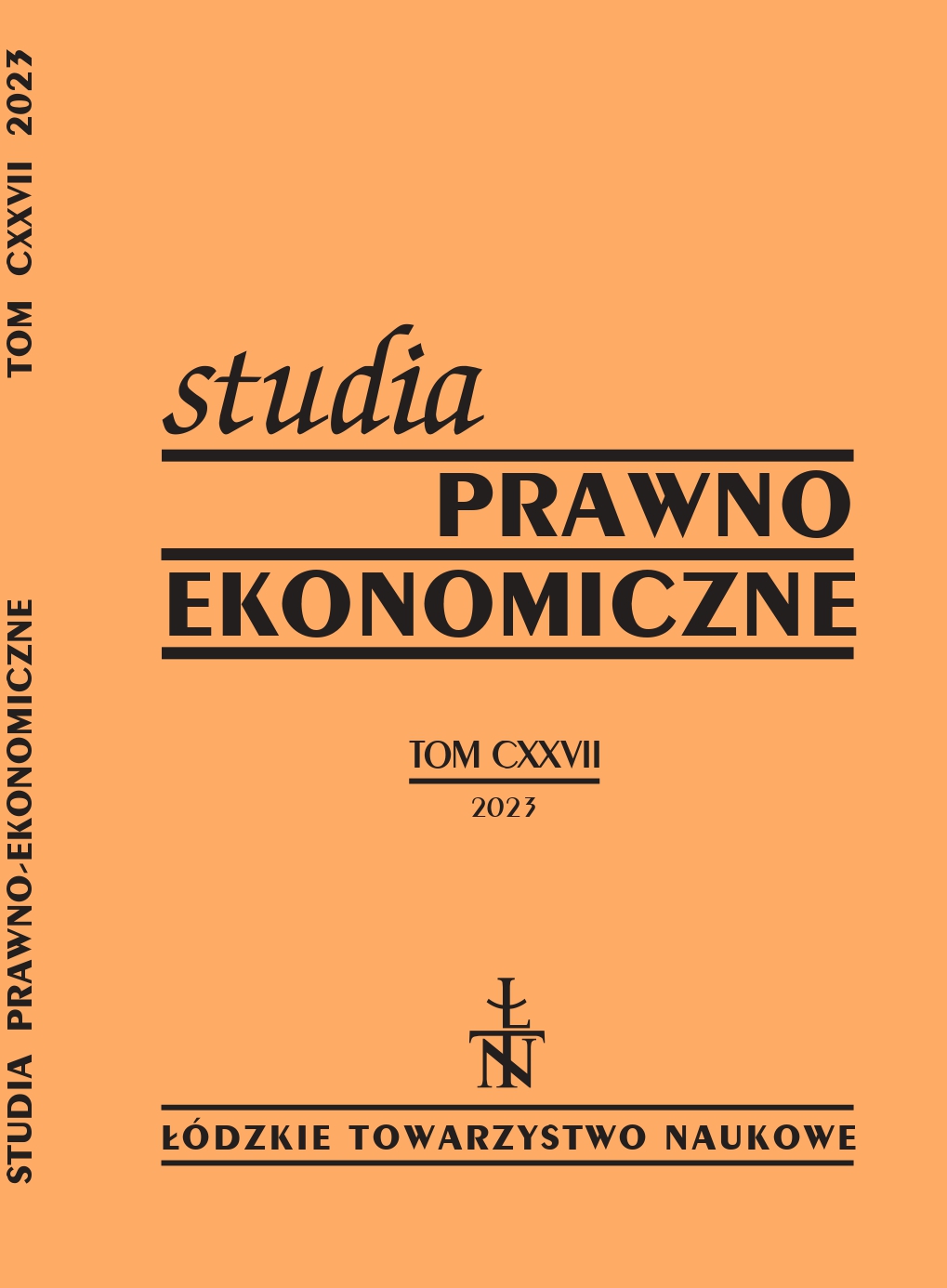Reshoring as a way to reduce imbalances in global supply chains
DOI:
https://doi.org/10.26485/SPE/2023/127/8Keywords:
relocation, offshoring, COVID-19 pandemic.Abstract
Backgrounds: The notion that the world has become flat and national borders are irrelevant for production and supply, which was popularized during the peak of globalization, is outdated. This is implied by the events we are currently experiencing (e.g., trade wars, military operations in Ukraine, the COVID-19 pandemic). Increasingly, it can be seen that the perspective of globalization remains undefined mainly due to the disruptions and problems experienced by global supply chains, which are currently an impulse to redefine the strategies implemented by companies related to, inter alia, the relocation of activities, mainly production. The question arises as to whether reshoring and related investments are gaining strength, and which countries can count on the return of native corporations.
Research purpose: The article presents the phenomenon of reshoring and tries to ascertain whether the disruptions that exert pressure on global supply chains imply its development.
Methods: The research methods used include a review and analysis of the available literature and background data from reports, as well as information obtained from the author’s own research conducted among managers of foreign capital companies operating in Poland, using the in-depth interview tool.
Conclusions: What we can expect as part of the activities undertaken by enterprises is the diversification of component/product sources from local/national markets (reshoring) or neighboring countries (nearshoring) located closer to the production plants. The analysis of the data and considerations concerning the relocation of economic activities as part of reshoring shows that corporations from the United States (83% of the surveyed companies) are most interested in reshoring. By contrast, those from European countries consider or implement nearshoring. Asia, China in particular, accounts for the largest number of reshoring projects.
Downloads
References
Allianz i Euler Hermes, Global Supply Chain Survey in Search of Post-Covid-19, Resilience, 2020.
Barbieri P., Stentoft J., Guest editorial: Reshoring: a supply chain innovation perspective, Operations Management Research 2016/9.
BCG, https://www.bcg.com/publications/2020/resilience-in-global-supply-chains; stan na 20.08.2022 r.
Blaug M., Teoria ekonomii. Ujęcie retrospektywne, Warszawa 1994, s. 624–628.
Boffeli A., Johansson M., What do we want to know about reshoring? Towards a comprehensive framework based on a meta-synthesis, Operations Management Research 2020/13 (1–2), Springer.
Drewry World Container Index, https://www.financialexecutives.org/FEI-Daily/August-2021/Don%E2%80%99t-Draw-the-Wrong-Lessons-for-Globalization.aspx; stan na 15.07.2022 r.
Gray J.V., Skowronski K., Esenduran G., Rungtusanatham M.J., The reshoring phenomenon: What supply chain academics ought to know and should do, Journal of Supply Chain Management 2013, s. 28.
Javorcik B., Global supply chains will not be the same in the post-Covid-19 world, w: R.E. Baldwin, S.J. Evenett, Covid-19 and Trade Policy: Why Turning Inward Won’t Work, CEPR Press, 2020, s. 111–116.
OECD, Coronavirus: The World Economy at Risk, Paryż 2020.
OECD, Covid-19, SME Policy Responses, Paryż 2020.
Parkins M., Defining the reshoring discussion. Reshoring American Jobs, International Economic Development Council 2015, s. 8–10.
Porter M.E., Porter o konkurencji, Warszawa 2001, s. 96.
Presley A., Meade L., Sarkis J., A strategic sourcing evaluation methodology for reshoring decisions, Supply Chain Forum: An International Journal 2016, s. 156–169.
Smith D.M., The teoretical framework of geographical studies of industrial location, Economic Geography 1996/42, s. 108–109.
Thomas Industrial Survey, Report, State of North America Manufacturing, 2021, https://f.hubspotusercontent00.net/hubfs/242200/UA%20Files/State%20of%20North%20American%20Manufacturing%202021%20Annual%20Report%20v1.3.pdf; stan na 15.07.2022 r.
UNCTAD, Impact of the Coronavirus Outbreak on Global FDI, 2020, https://unctad.org/en/PublicationsLibrary/diaeinf2020d2_en.pdf; stan na 20.07.2022 r.
Vernon R., The product cycle hypothesis in a new international environment, Bulletin of Economics and Statistic 1979/2, s. 254–267.
Wan Li., Orzes G., Sartor M., Di Mauro C., Nassimbeni G., Entry modes in reshoring strategies. An empirical analysis, Journal of Purchasing and Supply Management 2019/25/3, s. 1–10.
Weber A., Uber den Standort der Industrien, Tubingen 1909, s. 103–104.
Wodnicka M., Projekty offshoringowe w usługach biznesowych. Pozycja Polski, Wydawnictwo Uniwersytetu Łódzkiego, Łódź 2020.
World Container Index, Drewry Supply Chain Advisors, https://www.drewry.co.uk/supplychain-advisors/supply-chain-expertise/world-container-index-assessed-by-drewry; stan na 20.09.2022 r.
DCN, https://www.thedcn.com.au/news/containers-and-container-shipping/drewrys-world-containerindex-update-3/; stan na 15.07.2022 r.
ISM, https://www.ismworld.org/supply-management-news-and-reports/reports/; stan na 20.09.2022 r.
Reshoring Initiative, https://reshorenow.org/blog/reshoring-initiative-2021-data-report; stan na 20.08.2022 r.
Springer, https://link.springer.com/article/10.1007/s12063-020-00160-1/figures/1; stan na 10.09.2022 r.
Stanton Chase, https://www.stantonchase.com/honesty-and-integrity-trends-guiding-the-consumerindustry-in-2022/; stan na 15.07.2022 r.



